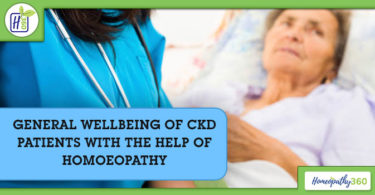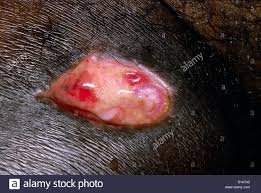Author:
Dr Jenita Rosario Fernandes
Prof & HOD
Yenepoya Homoeopathic Medical College & Hospital
Depression is classified as a mood disorder. It may be described as feelings of sadness, loss, or anger that interfere with a person’s everyday activities.
It’s also fairly common. People experience depression in different ways. It may interfere with your daily work, resulting in lost time and lower productivity. It can also influence relationships and some chronic health conditions.
Conditions that can get worse due to depression include:
It’s important to realize that feeling down at times is a normal part of life. Sad and upsetting events happen to everyone. But, if you’re feeling down or hopeless on a regular basis, you could be dealing with depression.
Depression is considered a serious medical condition that can get worse without proper treatment. Those who seek treatment often see improvements in symptoms in just a few weeks.
Depression can be more than a constant state of sadness or feeling “blue.”
Major depression can cause a variety of symptoms. Some affect your mood, and others affect your body. Symptoms may also be ongoing, or come and go.
The symptoms of depression can be experienced differently among men, women, and children differently.
Men may experience symptoms related to their:
- mood, such as anger, aggressiveness, irritability, anxiousness, restlessness
- emotional well-being, such as feeling empty, sad, hopeless
- behaviour, such as loss of interest, no longer finding pleasure in favourite activities, feeling tired easily, thoughts of suicide, drinking excessively, using drugs, engaging in high-risk activities
- sexual interest, such as reduced sexual desire, lack of sexual performance
- cognitive abilities, such as inability to concentrate, difficulty completing tasks, delayed responses during conversations
- sleep patterns, such as insomnia, restless sleep, excessive sleepiness, not sleeping through the night
- physical well-being, such as fatigue, pains, headache, digestive problems
Women may experience symptoms related to their:
- mood, such as irritability
- emotional well-being, such as feeling sad or empty, anxious or hopeless
- behaviour, such as loss of interest in activities, withdrawing from social engagements, thoughts of suicide
- cognitive abilities, such as thinking or talking more slowly
- sleep patterns, such as difficulty sleeping through the night, waking early, sleeping too much
- physical well-being, such as decreased energy, greater fatigue, changes in appetite, weight changes, aches, pain, headaches, increased cramps.
Children may experience symptoms related to their:
- mood, such as irritability, anger, mood swings, crying
- emotional well-being, such as feelings of incompetence (e.g. “I can’t do anything right”) or despair, crying, intense sadness
- behaviour, such as getting into trouble at school or refusing to go to school, avoiding friends or siblings, thoughts of death or suicide
- cognitive abilities, such as difficulty concentrating, decline in school performance, changes in grades
- sleep patterns, such as difficulty sleeping or sleeping too much
- physical well-being, such as loss of energy, digestive problems, changes in appetite, weight loss or gain.
Depression causes
There are several possible causes of depression. They can range from biological to circumstantial.
Common causes include:
- Family history. You’re at a higher risk for developing depression if you have a family history of depression or another mood disorder.
- Early childhood trauma. Some events affect the way your body reacts to fear and stressful situations.
- Brain structure. There’s a greater risk for depression if the frontal lobe of your brain is less active.
- Medical conditions. Certain conditions may put you at higher risk, such as chronic illness, insomnia, chronic pain, or attention-deficit hyperactivity disorder (ADHD).
- Drug use. A history of drug or alcohol misuse can affect your risk.
Other risk factors for depression include:
- low self-esteem or being self-critical
- personal history of mental illness
- certain medications
- stressful events, such as loss of a loved one, economic problems, or a divorce
*The causes of depression are often tied to other elements of your health*.
There isn’t a single test to diagnose depression. But your healthcare provider can make a diagnosis based on your symptoms and a psychological evaluation.
In most cases, they’ll ask a series of questions about you’re:
- moods
- appetite
- sleep pattern
- activity level
- thoughts
Because depression can be linked to other health problems, your healthcare provider may also conduct a physical examination and order blood work. Sometimes thyroid problems or a vitamin D deficiency can trigger symptoms of depression.
Don’t ignore symptoms of depression. If your mood doesn’t improve or gets worse, seek medical help. Depression is a serious mental health illness with the potential for complications.
If left untreated, complications can include:
- weight gain or loss
- physical pain
- substance use problems
- panic attacks
- relationship problems
- social isolation
- thoughts of suicide
- self-harm
Depression can be broken into categories depending on the severity of symptoms. Some people experience mild and temporary episodes, while others experience severe and ongoing depressive episodes.
There are two main types: major depressive disorder and persistent depressive disorder.
Major depressive disorder–Major depressive disorder is the more severe form of depression. It’s characterized by persistent feelings of sadness, hopelessness, and worthlessness that don’t go away on their own.
In order to be diagnosed with clinical depression, you must experience 5 or more of the following symptoms over a 2-week period:
- feeling depressed most of the day
- loss of interest in most regular activities
- significant weight loss or gain
- sleeping a lot or not being able to sleep
- slowed thinking or movement
- fatigue or low energy most days
- feelings of worthlessness or guilt
- loss of concentration or indecisiveness
- recurring thoughts of death or suicide
There are different subtypes of major depressive disorder, which the American Psychiatric Association refers to as “specifiers.”
These include:
- atypical features
- anxious distress
- mixed features
- peripartum onset, during pregnancy or right after giving birth
- seasonal patterns
- melancholic features
- psychotic features
- catatonia
Persistent depressive disorder
Persistent depressive disorder (PDD) used to be called dysthymia. It’s a milder, but chronic, form of depression.
In order for the diagnosis to be made, symptoms must last for at least 2 years. PDD can affect your life more than major depression because it lasts for a longer period.
It’s common for people with PDD to:
- lose interest in normal daily activities
- feel hopeless
- lack productivity
- have low self-esteem
Psychotherapy
Speaking with a therapist can help you learn skills to cope with negative feelings. You may also benefit from family or group therapy sessions.
Light therapy–Exposure to doses of white light can help regulate your mood and improve symptoms of depression. Light therapy is commonly used in seasonal affective disorder, which is now called major depressive disorder with seasonal pattern.
Exercise
Aim for 30 minutes of physical activity 3 to 5 days a week. Exercise can increase your body’s production of endorphins, which are hormones that improve your mood.
Avoid alcohol and drugs–Drinking or misusing drugs may make you feel better for a little bit. But in the long run, these substances can make depression and anxiety symptoms worse.
Learn how to say no-Feeling overwhelmed can worsen anxiety and depression symptoms. Setting boundaries in your professional and personal life can help you feel better.
Take care of yourself
You can also improve symptoms of depression by taking care of yourself. This includes getting plenty of sleep, eating a healthy diet, avoiding negative people, and participating in enjoyable activities.
Supplements
Several types of supplements are thought to have some positive effect on depression symptoms.
Omega-3 fatty acids-These essential fats are important to neurological development and brain health. Adding omega-3 supplements to your diet may help reduce depression symptoms.
Essential oils-Essential oils are a popular natural remedy for many conditions, but research into their effects on depression is limited.
People with depression may find symptom relief with the following essential oils:
- Wild ginger: Inhaling this strong scent may activate serotonin receptors in your brain. This may slow the release of stress-inducing hormones.
- Bergamot: This citrusy essential oil has been shown to reduce anxiety in patients awaiting surgery. The same benefit may help individuals who experience anxiety as a result of depression, but there’s no research to support that claim.
Other oils, such as chamomile or rose oil, may have a calming effect when they’re inhaled. Those oils may be beneficial during short-term use.
Vitamins-Vitamins are important to many bodily functions. Research suggests two vitamins are especially useful for easing symptoms of depression:
- Vitamin B: B-12 and B-6 are vital to brain health. When your vitamin B levels are low, your risk for developing depression may be higher.
- Vitamin D: Sometimes called the sunshine vitamin because exposure to the sun supplies it to your body, Vitamin D is important for brain, heart, and bone health. People who are depressed are more likely to have low levels of this vitamin.





